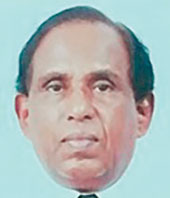Features
How to motivate foreign direct investment to Sri Lanka

by WA de Silva
Former Executive Director BOI
What are the strategies adopted to attract and obstacles which hinder smooth flow of FDI to Sri Lanka?
The Board of Investment of Sri Lanka (BOI) is the principal agent of the Government entrusted with the responsibility of promoting facilitating and maintenance of Foreign Direct Investments (FDI) based on Board of Investment Law No. 04 of 1978, Strategic Development Act No. 14 of 2008 and subsequent amendments thereto. The Greater Colombo Economic Commission (GCEC) was the predecessor to the Board of Investment. Government has already proposed to establish a Sri Lanka Economic Commission over and above BOI as an apex body on FDI.
The package of incentives currently being used by the BOI for attracting FDI is as follows. FDI projects approved under section 17 of BOI Law No. 04 of 1978 are granted exemptions from laws specified in Schedule “B” of the Law which encompassed the Inland Revenue Act, Customs Ordinance, Exchange Control Act, Companies Ordinance, Merchant Shipping Act, Finance Act, Air Navigation Act, Excise Act, Value Added Tax Act, Economic Service Charges Act, Debt Tax Act etc. subject to the regulations issued by Minister concerned from time to time.
The FDI projects approved under Section 02 of the Strategic Development Project Act No. 14 of 2008 are also granted exemptions from laws specified in the Schedule thereto and further concessions recommended by Minister concerned subject to the approval of Cabinet of Ministers and Parliament. However it may be noted that exemptions given under Schedule B of BOI Law No. 04 of 1978 could be changed, adjusted or revoked by regulations gazetted by Minister in Charge of FDI from time to time subject to prior approval of Cabinet of Ministers. In that context exemptions given to FDI projects are vulnerable to change of Governments and change of the mindset of the politicians who hold Governmental power.
In this context it has become necessary to enact a comprehensive national Policy on FDI covering at least a period of 10 years to avoid abrupt changes of FDI Policy due to whims and fancies of political authorities who hold governmental power.
Article 157 of the Constitution of Sri Lanka provides guarantees for FDI project agreements entered into with BOI. It states inter alia “any Treaty or Agreement between the Government of Sri Lanka and the Government of any foreign State for the promotion and protection of the investments in Sri Lanka of such foreign State, its nationals or of corporations, companies and other associations incorporated or constituted under its laws such treaty or agreement shall have the force of law in Sri Lanka and otherwise than in the interests of national security, no written law shall be entered or made, and no executive or administrative action shall be taken in contravention of the provisions of such Treaty or Agreement”.
The very intention of this Article in the Constitution is to provide stability, promote, foster and protect FDI in Sri Lanka. However it has been observed, this law has been distorted by way of imposing various taxes, levies and cesses which violate free of duty concessions for exports and import of raw materials and project related items given under BOI Agreements/ Such provisions under Section 17 of BOI Law No. 04 of 1978 are allowd to FDI projects due to the fact that those levies and cesses are considered another kind of tax in disguise. PAL (Port Authority Levy) and EIC (Export Import Cess) could be cited as clear examples in this regard.
FDI projects are further benefited by bilateral investment promotion Agreements, double Tax Avoidance Agreements and Free Trade Agreements that Sri Lanka Government has entered into with some selected countries. However due to political protests, Governments couldn’t complete the proposed number of projects. In case of Free Trade Agreements it is necessary to balance the impact of imports and exports between Sri Lanka and the other party to the Agreement and ensure it is in favour of Sri Lanka.
Availability of skilled and trainable workforce, emerging prospects of being a logistic and trading hub of the region consequent to the promulgation of Port City, restoration of peace after eradication of terrorism and the Covid-19 pandemic situation, are considered plus factors for attracting of FDI. However, various negative factors in this process should be arrested to make the positives effective.
There are some procedural obstructions in the process of expediting FDI inflow at present such as clearance required from several Departments and institutions in terms of Tax Laws, Land Laws, Exchange Control Laws, Customs Laws, Labour Laws, Environmental Laws, Laws on Archeology etc. prior to finalizing approval for FDI projects. The one-stop-shop concept and Cabinet Sub-Committee on Investment were established to resolve this problem. However this arrangement did not last long and work satisfactorily due to the adverse impact of political instability of the country and lack of genuine dedication by agencies who participate in this program.
Provisions in some Labour Laws such as Trade Union Ordinance, Factory Ordinance, Holidays Act, Industrial Disputes Act, Termination of Employment Act etc. are impediments to FDI. This is due to abuse of those laws by politicized trade unions to secure their self-interest. Strikes, violent protests, work to rule campaigns and even so called Aragalaya launched by several Trade Unions in the public sector and the private sector, more specifically in Export Processing Zones, could be cited as glaring instances of discouraging prospective FDI Projects intended for Sri Lanka and FDI projects already here. Sabotage of FDI Projects and discouraging of FDI inflows to the country are considered hidden objectives behind those strikes. The law and order issues emerging from time to time due to politicized strikes have been deterrents to attracting FDI.
Certain provisions in prevalent Labour Laws here hinder smooth functioning and production flow of FDI Projects in Export Processing Zones. Several mechanisms such as adjudication, mediation, conciliation, arbitration, negotiation through collective bargaining to resolve industrial disputes exist. But harmful trade union actions such as work-to-rule, go-slow, politicized strikes, general strikes etc.
occur as there is no legal provision in any of those enactments to make it mandatory for trade unions to choose a mechanism more peaceful and beneficial for both parties (employers and employees) such as peaceful negotiations, collective bargaining etc. in the process of resolving industrial disputes. It is necessary to amend Labour Laws eliminating these to create a peaceful labour environment conducive for FDI.
The irresponsible conduct of those who are in the forefront of disseminating negative information over the world against Governments in power have demoralized prospective foreign investors to a considerable extent. Instability they create within the country has obstructed peaceful environment required for FDI on the one hand and tarnishing image of the country tends to demoralize prospective investors on the other.
The ongoing economic crisis and government’s bankruptcy declaration have made prospective investors look for alternative destinations such as Bangladesh, Vietnam, Maldives, Malaysia etc. to invest in. The government is now in the process of sorting out the economy. In that process it is necessary to secure active co-operation and support of political parties in the Opposition.
Political interference in State Owned Enterprises (SOEs) is common. Such interference is not uncommon in the BOI as well retarding its efficiency to some extent. The BOI leadership must handle such pressure in the manner adopted by first Chairman/Director General of GCEC/BOI Upali Wijewardena. There have been occasions in the past where the BOI was compelled to launch several projects non-viable in the long-run at public cost as alternative to FDI due to political pressure. The classic example in this regard is the 200 garment factories project and Mihintale Gamudawa sponsored by BOI at a tremendous cost. These projects do not exist at present.
FDI targets set should be realistic and achievable. The concerned authorities should take relevant global and local situations into account in approving projects. The practice of fixing targets based on political ambitions disregarding the reality of global and local situations should be arrested due to the fact that such targets are not realistic and hence unachievable.
The BOI’s Research Department claims that the following FDI targets for the years 2022 and 2023 were achieved.
This achievement is commendable in the context of the ongoing political and economic crisis and other impediments referred to above which hindered FDI flow. These obstacles obviously are beyond BOI control.
The Government has decided to enact an Investment Act to be the governing law for the proposed Sri Lanka Economic Commission (SLEC). The functions of BOI and Export Development Board would be merged and placed under SLEC. In addition it has been decided to establish Sector Specific Advisory Councils (SSAC) to seek expertise from private and public sectors for attraction and retention of FDI in Sri Lanka.
This program would definitely be an effective solution to the institutional structural and procedural deficiencies in attracting FDI into Sri Lanka. However it will not be a solution to the ongoing political and economic instability in this country which is the main obstacle to attracting and promoting FDI.
Whilst clearing these obstacles, it is necessary to make present incentive package for FDI Projects more attractive and competitive when compared to the packages offered by our competitors in the region. It is necessary to obtain expertise of internationally recognized professionals in this regard and also to make funds available for that purpose.
Lack of sufficient fund allocation to provide maintenance and update infrastructure facilities required for FDI in the Export Processing Zones should be resolved.
It may be noted that it is extremely difficult if not impossible to accelerate FDI flow in Sri Lanka without political and economic stability here. Political and economic instability is the outcome of divisive politics exercised by political parties and affiliates based on their self-centered agendas disregarding the national interest. Resolution of this problem is absolutely necessary in the process of promoting FDI.
(The writer is a retired executive director of the BOI who holds an MBA from the SJU following his first BA (Special) degree from the University of Ceylon in 1967. He has served as a consultant on various Human Resource Management and Development programs and also lectured at the American College of Higher Studies. He’s been a management consultant to a multinational group of FDI companies from 2006 to date)
